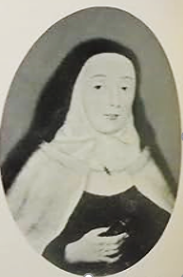See also
- Paston-Bedingfeld baronets of Oxburgh in the County of Norfolk, a title in the Baronetage of England
Bedingfeld, a variant of Bedingfield, is an English surname. Notable people with this surname include the following:
Allenby is a surname of English origin. Notable people with the surname include:
Cranach is a German-language surname. Notable people with the surname include:
Sir Edmund Bedingfield or Bedingfeld. was the third son of Sir Edmund Bedingfield, Knight of the Bath, and his second wife Dame Margaret, daughter of Sir John Scott, of Scot's Hall in Kent. Sir Edmund the father died in 1496-97, making his will at Calais. His widow died in 1514, having made her will the previous year, in which she established the Bedingfield chapel in St John's parish church at Oxborough.

Sir Henry Bedingfeld (1505–1583), also spelled Bedingfield, of Oxburgh Hall, King's Lynn, Norfolk, was a Privy Councillor to King Edward VI and Queen Mary I, Lieutenant of the Tower of London, and Vice-Chamberlain of the Household and Captain of the guards. With Sir Henry Jerningham he was among the principals who rallied to Mary's cause following the death of Edward VI in 1553 and helped to set her upon the throne. He was a senior figure in the kinship group of Catholic recusant landowning knights of Suffolk. Given responsibility for the custody of Mary I's half-sister Elizabeth when in the Tower of London and at Woodstock, his reputation has suffered from the repetition of claims of his severity towards her: however Queen Elizabeth was respectful towards him and continued to find service for him. Among the foremost Englishmen of his time, he occupied prominent and honourable positions and was of unquestioned loyalty.

Prideaux is both a given name and surname of Cornish origin, derived from the place called Prideaux in the parish of Luxulyan. The place-name had the form Pridias in the 12th and 13th centuries; by folk etymology both the place-name and the surname have been altered to a form based on the French près d'eaux or pré d'eaux.
This is a list of Sheriffs of Norfolk and Suffolk. The Sheriff is the oldest secular office under the Crown and is appointed annually by the Crown. He was originally the principal law enforcement officer in the county and presided at the Assizes and other important county meetings. After 1576 there was a separate Sheriff of Norfolk and Sheriff of Suffolk.

The Bedingfeld, later Paston-Bedingfeld Baronetcy, of Oxburgh in the County of Norfolk, is a title in the Baronetage of England. It was created by Charles II of England in recompense for the family's losses in the Royalist cause during the Civil War and Interregnum years. The Bedingfelds are said to descend from 'Ogerlis', a Norman, who, in 1100, held land at Bedingfield, Suffolk. His descendant, Edmund Bedingfeld, married Margaret, daughter and heiress of Sir Robert Tuddenham, bringing to her husband estates including the manor of Oxburgh, near Swaffham, Norfolk.
Cholmeley is a surname. Notable people with the surname include:
Holtby is a surname. Notable people with the surname include:
Fortescue is an English surname that originated from the old Norman epithet Fort-Escu. People with the surname include:
Sir Henry Bedingfeld (1506–1583) was an English privy councillor and Vice-Chamberlain of the Household, MP for Norfolk and Suffolk.
Habington is a surname. Notable people with the surname include:
Dunch is a surname. Notable people with the surname include:
Lowys is a surname. Notable people with the surname include:
Brooking is a surname. Notable people with the surname include:
Bedingfield is an English surname. Notable people with the surname include:
Lybbe is a surname. Notable people with the surname include:
Heydon is a surname. Notable people with the surname include:

Margaret Mostyn, religious name Margaret of Jesus, was an English Discalced Carmelite and prioress of the Lierre Carmel from 1654 until her death. She is remembered for her devotion to the Virgin Mary and for a series of visions that she experienced throughout her life.
Forsett is a surname. Notable people with the surname include: